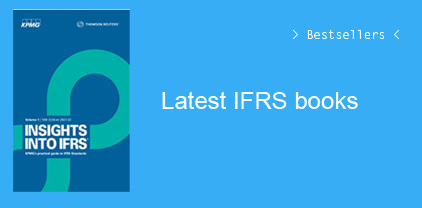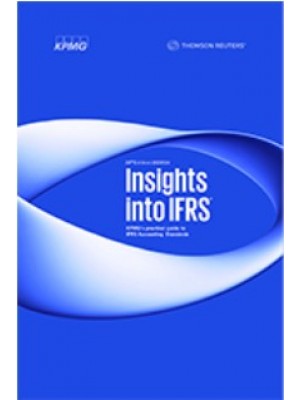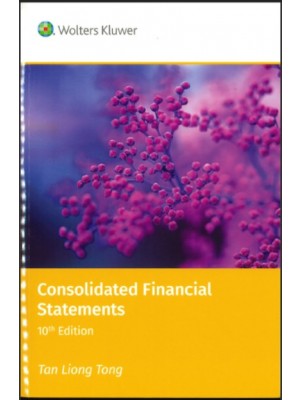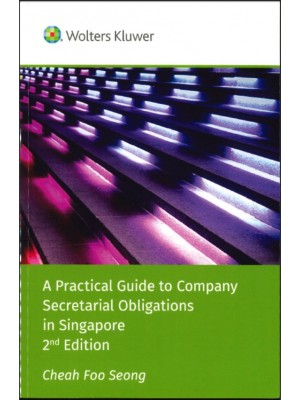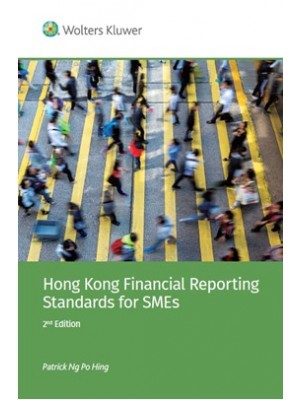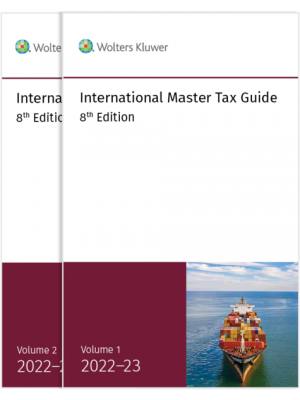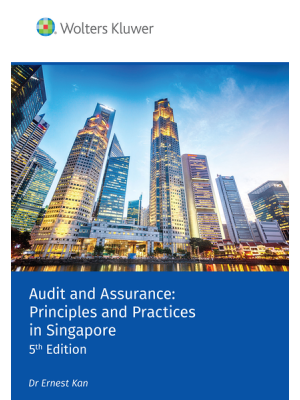Wolters Kluwer’s Financial Instruments is a comprehensive reference manual on accounting for financial instruments, including loans, securities, securitizations, and derivatives. It integrates and analyzes all of the existing accounting literature on this topic into one volume, and provides analysis and explanation of that guidance.
Financial Instruments is written for practicing accountants and other professionals who need to understand the accounting for financial instruments. This product pulls together all of the existing accounting literature on financial instruments into one volume, organizes it logically, and describes the requirements as simply as possible. Given the complexity of the subject matter, there are limits on how “simple” one can make this material. However, this comprehensive, topic-based approach will save practitioners time and effort in researching accounting issues and provide a comfort level knowing that they have considered all of the relevant guidance. The text includes visual aids whenever possible; observations, such as differences between instrument types; practice pointers; and examples to help readers understand the requirements. The product also includes a cross-reference between original pronouncements, the relevant Accounting Standards Codification Topic, and cites the chapter(s) in which they are discussed, a glossary of terms that includes references to the applicable chapter(s), and a detailed index.
What This Product Covers
Financial Instruments is a comprehensive reference manual of generally accepted accounting principles (U.S. GAAP) in the United States about financial instruments. A financial instrument is cash, an ownership interest in another entity (such as common stock), or a contract that conveys an obligation and a corresponding right to require delivery of (or exchange) a financial instrument(s). The right may be contingent (such as an option) or unconditional (such as a loan). A financial instrument is ultimately convertible to cash (or stock) and does not involve the delivery of goods or services.
This product includes guidance originally issued by the Financial Accounting Standards Board, and the FASB's Emerging Issues Task Force and Derivatives Implementation Group (DIG). It also includes accounting guidance issued by the American Institute of Certified Public Accountants (AICPA), including standards issued by the Accounting Standards Executive Committee (AcSEC), and the audit and accounting guides issued by various committees of the AICPA. It covers accounting requirements for public and private companies and touches on unique aspects of reporting financial instruments by nonprofit organizations. Financial Instruments does not cover certain transactions that are technically financial instruments, but that are accounted for under specialized accounting models, including stock compensation and other forms of employee benefits (from the issuer's perspective), most leasing transactions, and insurance contracts. This product does not address the equity method of accounting (for investments that convey significant influence over the investee), consolidation of operating entities (for investments that convey control over the investee), or business combinations. Wolters Kluwer’s GAAP Guide addresses all of those subjects in detail. However, this product does address consolidation of special-purpose entities that are used to securitize financial assets. This product does not discuss in detail the specialized accounting models used by pension plans, brokers and dealers in securities, and investment companies whereby substantially all of their assets (and certain liabilities) are carried at fair value. This product refers to positions of the SEC staff (and other guidance published by the SEC) when it interprets or elaborates on a financial reporting requirement originally established by the FASB or AICPA. This product does not represent a comprehensive guide to SEC reporting requirements, even for financial instruments.
This product contains cross-references to the Accounting Standards Codification so that readers can carefully review the full text and other relevant material. In certain instances, references to the Codification are not included (e.g., tentative guidance, effective date and transition guidance for standards that are already fully effective, standards that are superseded, content from the basis for conclusions of accounting pronouncements). In addition, this product contains references to sources that are outside the scope of the Codification, including FASB Concepts Statements, auditing standards, rulings of the Internal Revenue Service, and regulatory principles developed by the federal banking agencies and the National Association of Insurance Commissioners. Those references are intended to provide context and depth to the discussion of the topic being discussed. However, any accounting literature not included in the Codification is considered nonauthoritative.
This product also includes a high-level discussion of the relevant International Financial Reporting Standards (IFRS) for financial instruments covered in each chapter. “IFRSs” consist of pronouncements issued by the International Accounting Standards Board (IASB) and standards and interpretations issued and approved by the IASB's predecessor Board, the International Accounting Standards Committee (IASC).
How This Product Is Organized
Financial Instruments is organized into five parts:
- Part I: Financial Assets, including cash, securities, loans, and servicing rights
- Part II: Financial Liabilities, including debt, securities lending arrangements, and convertible debt
- Part III: Derivative Instruments, including hedging activities
- Part IV: Equity Instruments, including various forms of stock and contracts indexed to a company's own stock
- Part V: Pervasive Issues, such as offsetting and fair value measurement and disclosures
Within each part, the chapters are organized by instrument type in the order in which they typically appear in a company's balance sheet. Each chapter integrates all of the available guidance for that type of instrument and alerts the reader to potential changes in accounting (such as an outstanding FASB Exposure Draft or an EITF Issue under discussion). Each chapter covers the relevant accounting questions for that type of instrument, including:
- When and how to initially recognize the instrument in the balance sheet.
- How to present the instrument in the financial statements.
- How to measure the instrument in subsequent periods (e.g., cost or fair value).
- How to recognize income or expense.
- When and how to recognize impairment.
- When to remove the instrument from the balance sheet (and whether to recognize a gain or loss).
- What to disclose in the footnotes.
Each chapter also highlights any interesting aspects of regulatory reporting for certain institutions and areas of audit risk that stem from the financial reporting requirements. Certain positions of the SEC (and its staff) are included when they relate directly to information that must be included in the audited financial statements of a public company. To facilitate additional research, Financial Instruments includes references to pertinent paragraphs of the Accounting Standards Codification. Readers who are familiar with a specific pronouncement can locate that pronouncement in the cross-reference section (21,001) and then refer to the chapter(s) in which it is discussed. The glossary and index can also be used to locate guidance on specific instruments and accounting topics. This edition reflects authoritative guidance that pertains to financial instruments issued through May 31, 2018.
2020 Edition
This edition covers various new accounting standards in the area of financial instruments, including:
- 1. FASB Accounting Standards Update No. 2016-13, Financial Instruments— Credit Losses (Topic 326): Measurement of Credit Losses on Financial Instruments
- 2. FASB Accounting Standards Update No. 2017-11, Earnings Per Share (Topic 260); Distinguishing Liabilities from Equity (Topic 480); Derivatives and Hedging (Topic 815): (Part I) Accounting for Certain Financial Instruments with Down Round Features, (Part II) Replacement of the Indefinite Deferral for Mandatorily Redeemable Financial Instruments of Certain Nonpublic Entities and Certain Mandatorily Redeemable Noncontrolling Interests with a Scope Exception
- 3. FASB Accounting Standards Update No. 2017-12, Derivatives and Hedging (Topic 815): Targeted Improvements to Accounting for Hedging Activities
- 4. FASB Accounting Standards Update No. 2018-02, Income Statement—Reporting Comprehensive Income (Topic 220): Reclassification of Certain Tax Effects from Accumulated Other Comprehensive Income
- 5. FASB Accounting Standards Update No. 2018-03, Technical Corrections and Improvements to Financial Instruments—Overall (Subtopic 825-10): Recognition and Measurement of Financial Assets and Financial Liabilities
- 6. New SEC staff guidance.
Numerous other accounting developments are reflected in this edition.


